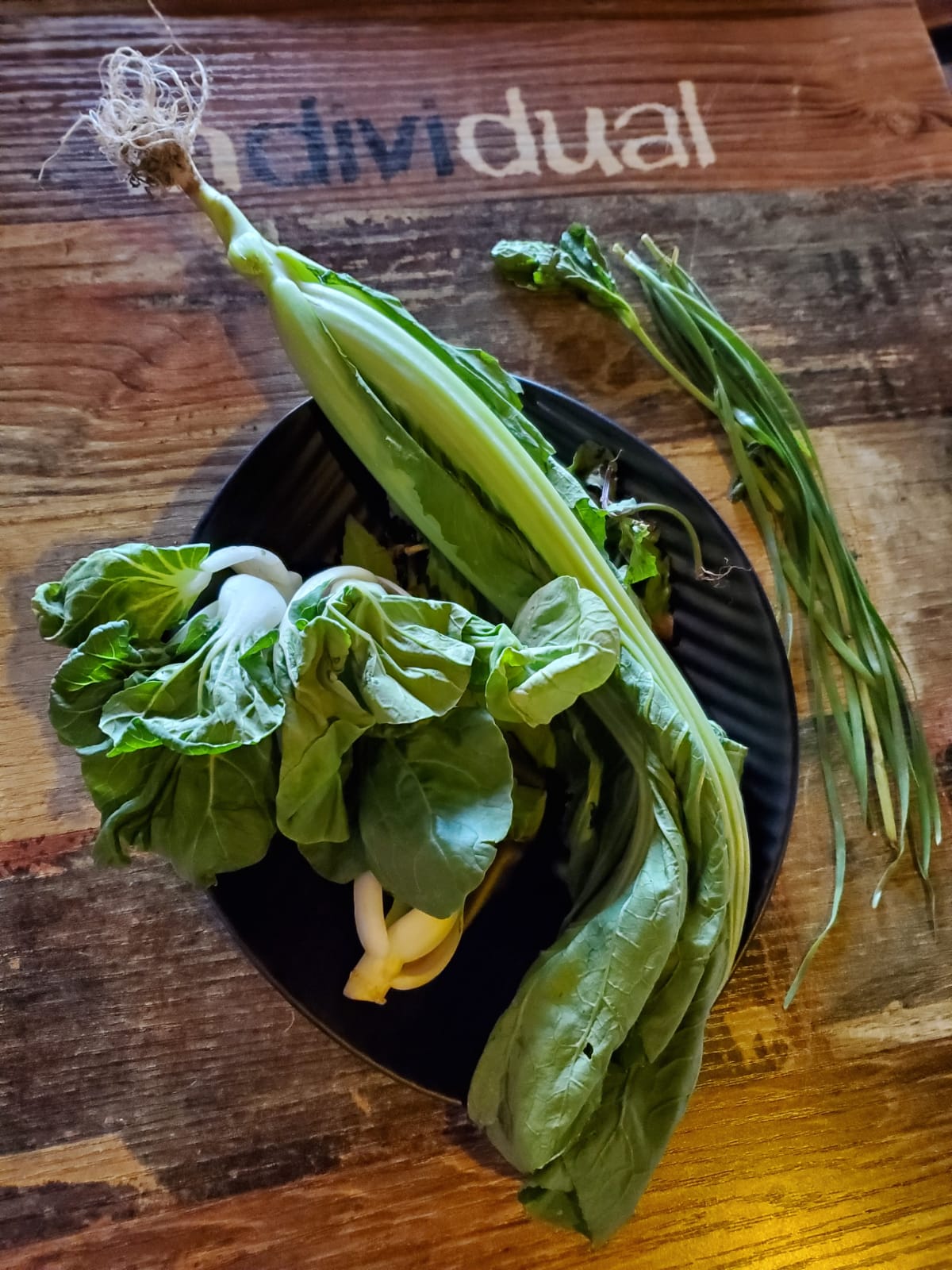Mui Wo Flavours: Sharing and Lunch
Article and photos by Jane Meijnen
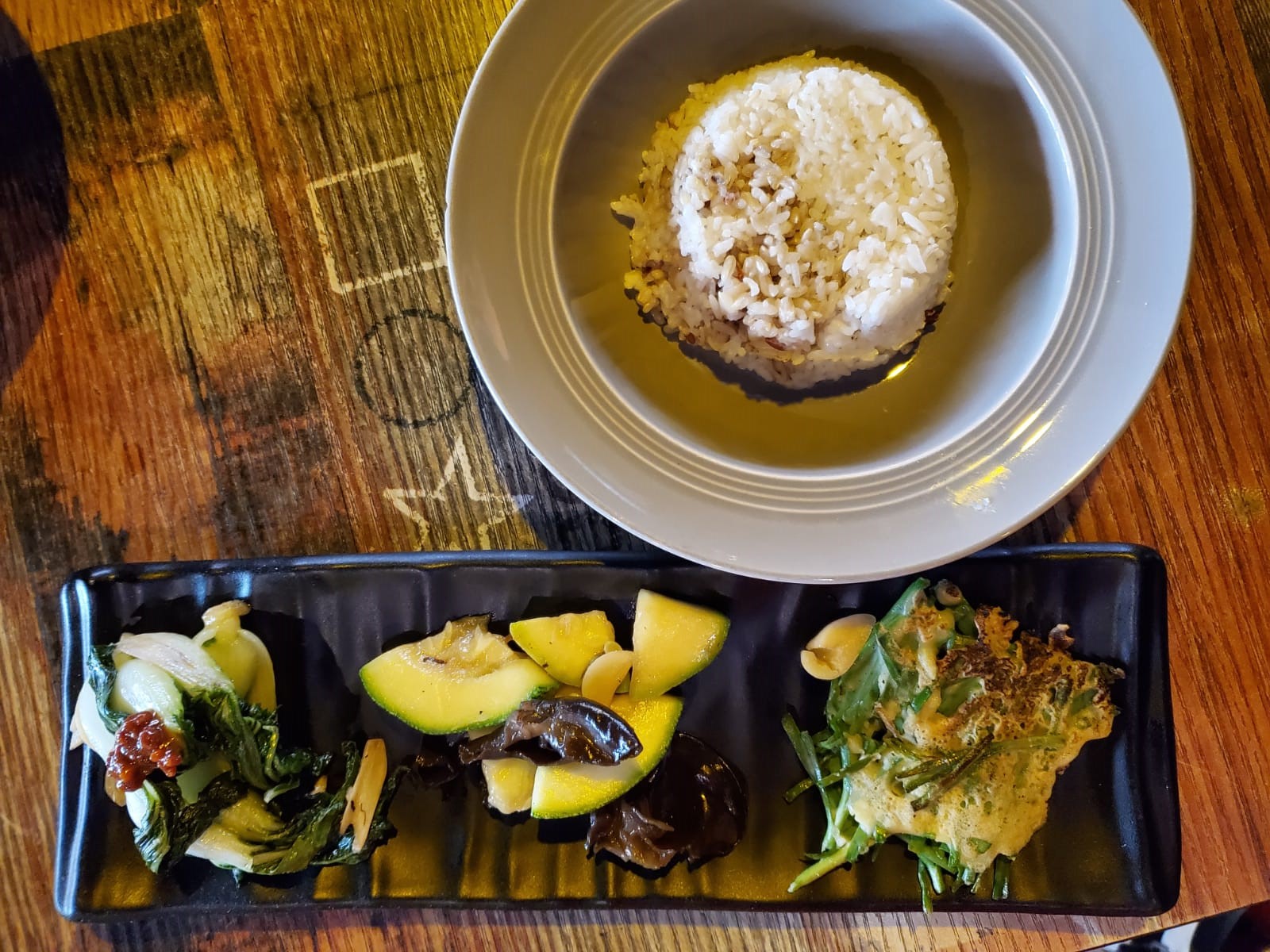
To start with an extract from the Mui Wo Farm To Table literature as the best way to introduce the tasty and informative afternoon we had ahead: “Farm to Table is not just about fulfilling the appetite but also about the respect of nature, land and living … turning the local crops to delicious dishes and introducing the local crops, ecology and history of Mui Wo”.
Lunch comprised of 4 courses, the menu being mainly based on Lacto-Ovo vegetarian diet, which is primarily plant based and excludes meat, fish and poultry, but may include dairy and eggs.
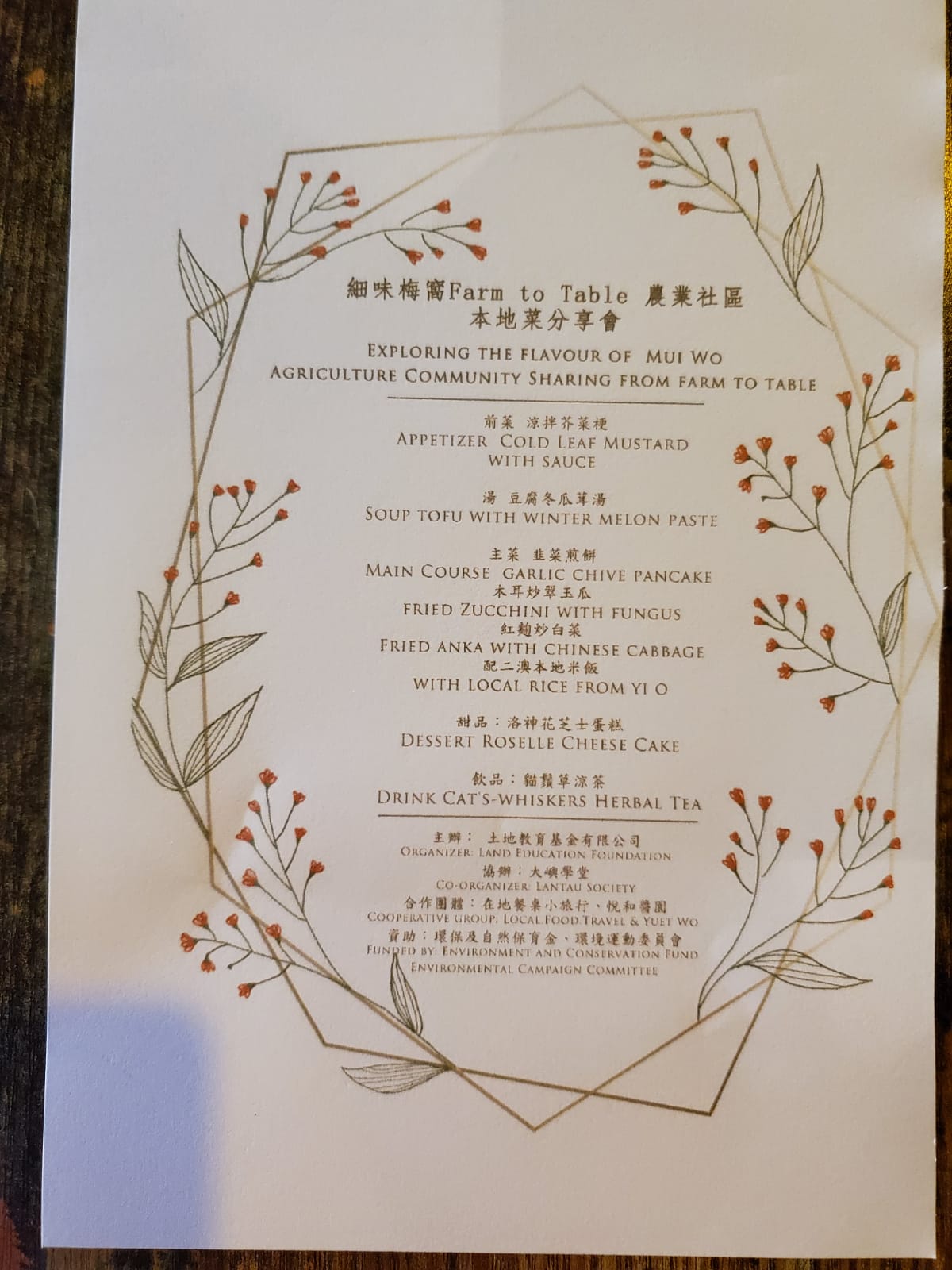
The first course provides a tremendous demonstration of the passion the Mui Wo Farm to Table Agriculture Community Project has in sourcing and therefore supporting all that goes in to Hong Kong produce.
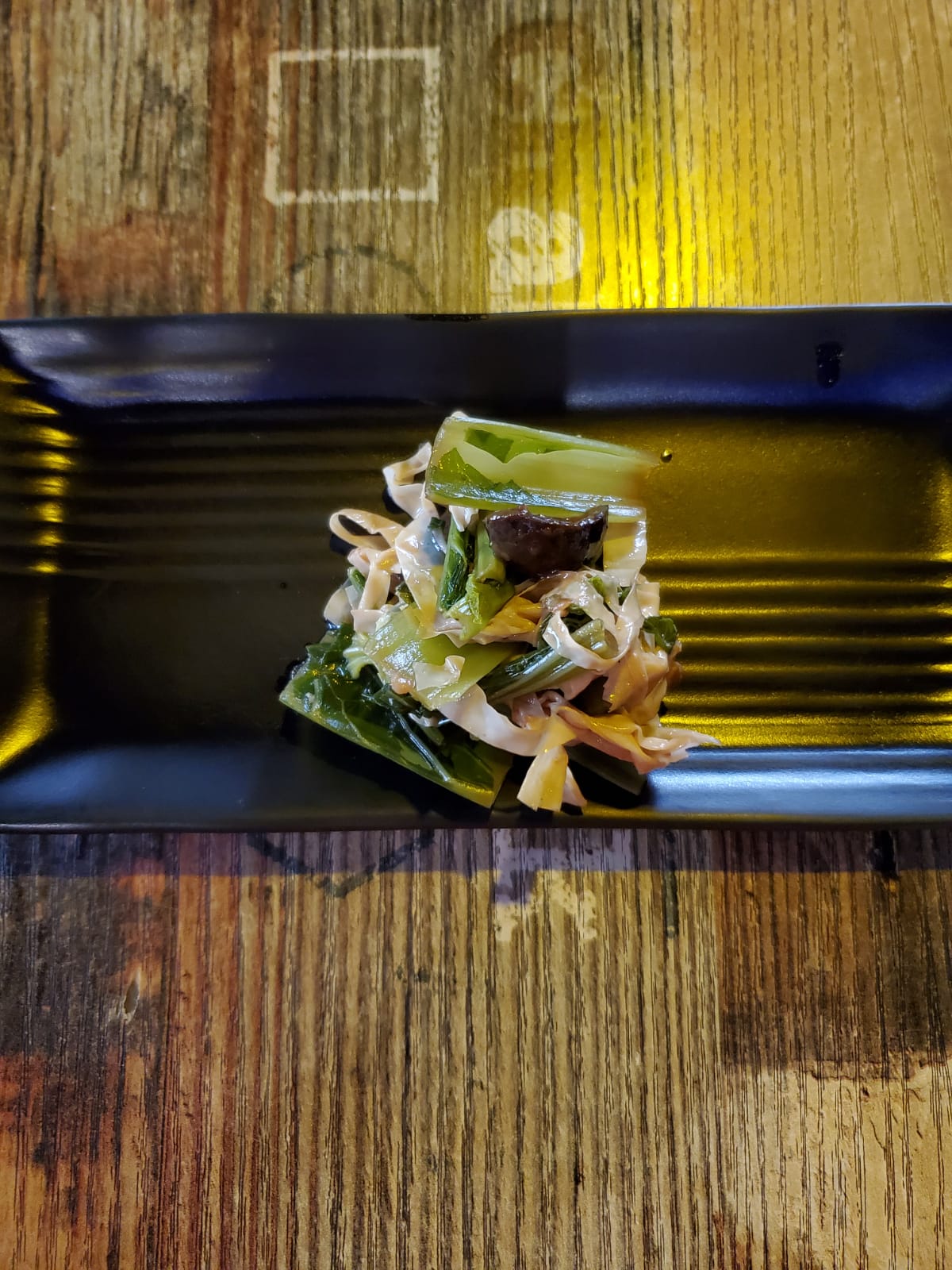
The winter melon soup was made from the end of season organic melon from Mui Wo, with mushrooms from Yuen Long. A soy bean factory in Sham Shui Po made the tofu, while the gui choy was from a second generation farm in Mui Wo with a local soy sauce produced in the northern district. And it was delicious.
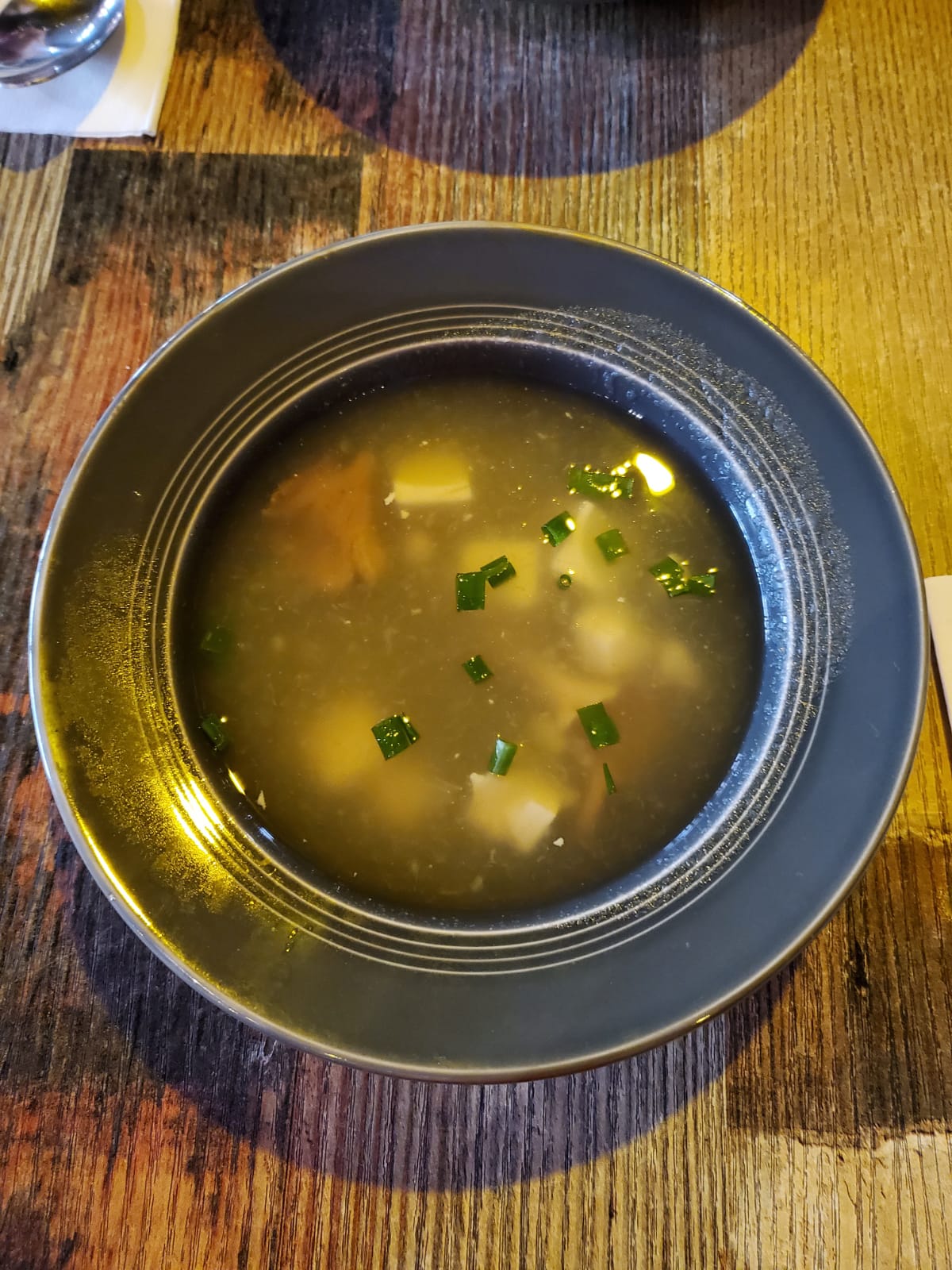
The afternoon included a highly informative introduction to the farmers and farmlands in Mui Wo to help the audience understand the value of local vegetables and the importance of the farmers in developing the surrounding ecology. We learnt about the Community Members Concern Group that sprung from concern of the impact of the East Lantau Reclamation Project and the growing numbers of tourists, and the group wanted to organize activities such as local farm visits and to encourage local restaurants to source local vegetables. In support of the local ecology they began to document the natural habitat, including the wild buffalo who are viewed as “friends” and therefore not eaten by the older generation.
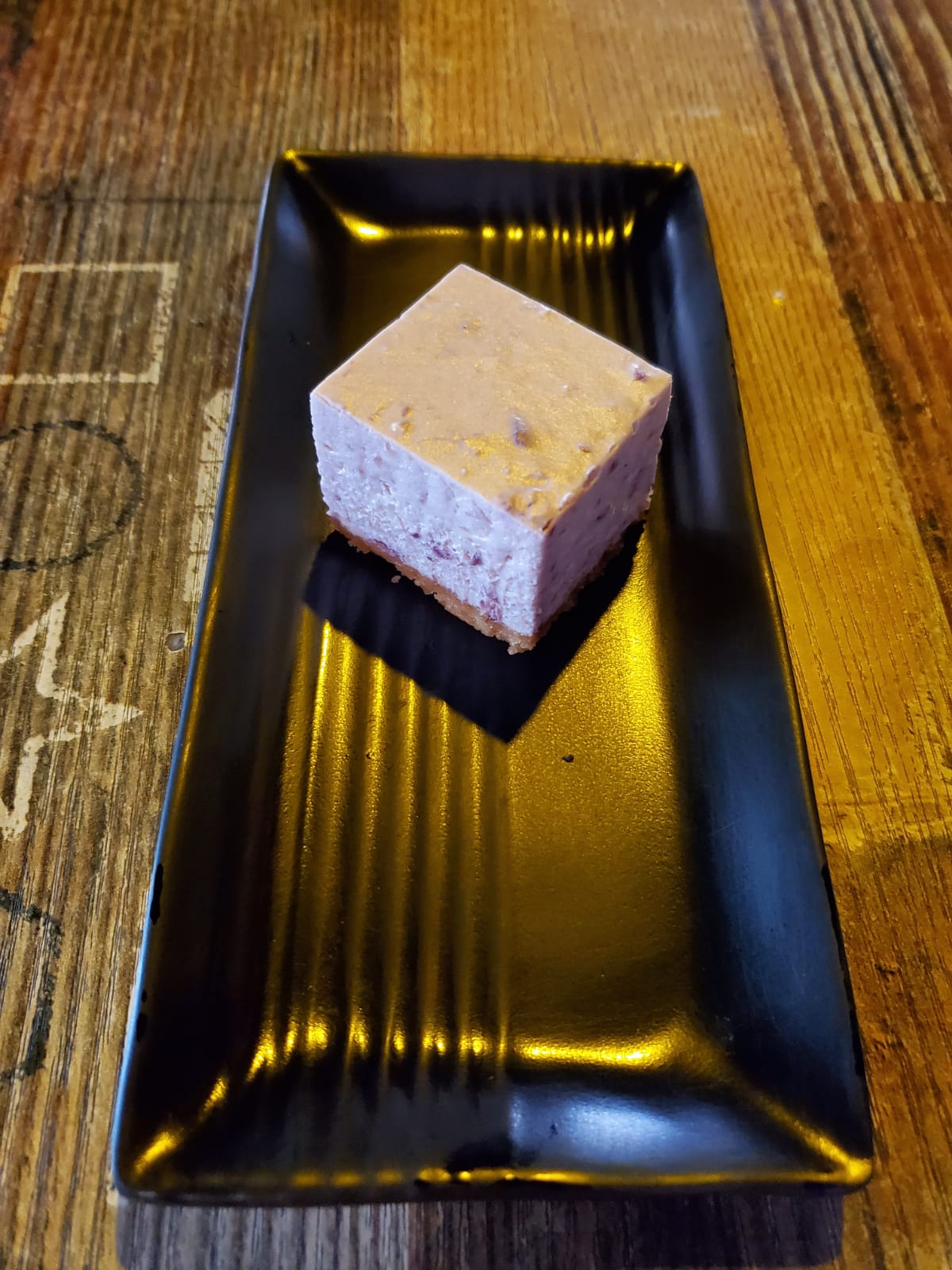
We then had a university lecturer provide an agricultural perspective of land use and value in Hong Kong – farmland vs property development, organic vegetables vs chemically grown produce, and reminding us that ecology in Hong Kong is not “valued” and informing of the context of subsidized mainland vegetables in Hong Kong’s wet markets.
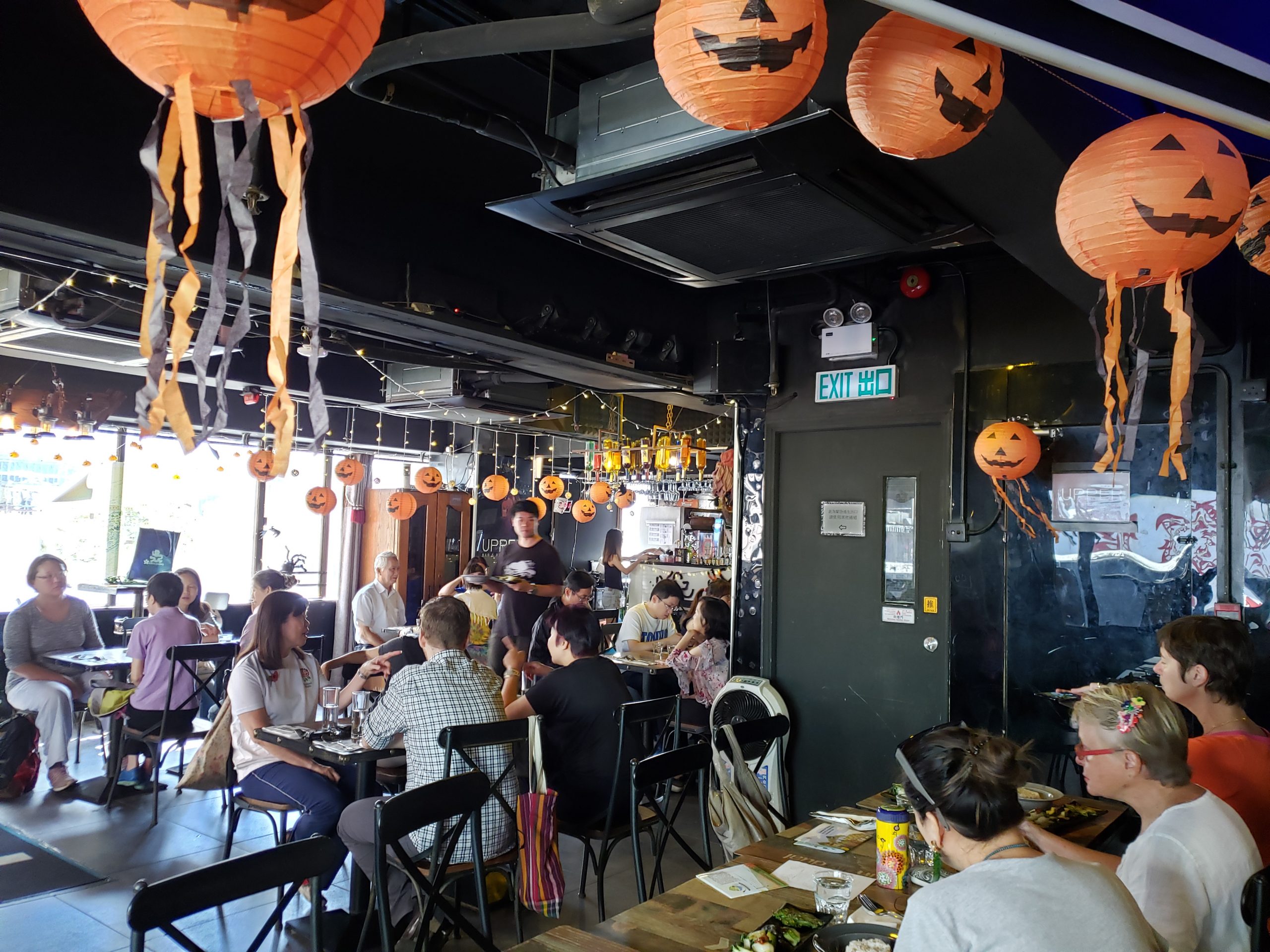
Ease the tough environment for our local farmers by showing your support through buying local.
